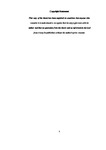WHO AM I? SUBJECTIVITIES IN THE SOCIETY OF ACCOUNTABILITY
| dc.contributor.supervisor | MONICO, FRANCESCO | |
| dc.contributor.author | BIANCHI, AMOS | |
| dc.contributor.other | Faculty of Arts, Humanities and Business | en_US |
| dc.date.accessioned | 2017-10-10T14:28:47Z | |
| dc.date.available | 2017-10-10T14:28:47Z | |
| dc.date.issued | 2017 | |
| dc.identifier | 10214705 | en_US |
| dc.identifier.uri | http://hdl.handle.net/10026.1/10040 | |
| dc.description.abstract |
The doctoral thesis Who Am I? Subjectivities in the Society of Accountability aims to demonstrate that accountability is one of the most powerful processes of subjectivation in our contemporary era. The background is constituted by ordinary daily practices, born from the propagation of digital media in the last twenty years. Accountability is defined as the peculiar anthropotechnic that derives from the extension of the subject in the form of the account. Account is defined as every extension of the subject in the digital world, so that these extensions are univocally attributable to a singular physical body of a singular human being. The concept of subjectivity is considered as outlined by Michel Foucault in the period 1977-1984. The dissertation also aims to demonstrate that the society of control, investigated by Foucault and Gilles Deleuze, finds its present fulfillment in the form of the society of accountability. Accountability is considered in three moments, connected by a circular movement instead of a causal sequence. The first moment describes how dispositives act on subjects. The scene of address is constituted by the request of performativity made by dispositives to the subject. This request takes place in the account, to be understood as the interface between dispositives and subjects. Secondly, the same process is taken in consideration from the point of view of the subject, who is invited to answer the question: Who am I? Thus the subject understands him/herself as a subjectivity without ground, because the hermeneutics of the self, derived from dispositives, finds the foreclosure of the referent as its foundation. In a third moment accountability is considered from the point of view of the statements (énoncés). The conversion of statements into information, and the statistical inferences operated on it (basically, the processes related to big data), are the focus of this moment. The outcome of this analysis is a second hermeneutics of the subject, characterised by the discourse of the master. Convergences and divergences between this (digital) hermeneutics, the Christian hermeneutics derived from the confession and the Cartesian moment are explored in order to outline the actual accountability as pastoral power and discourse of the master at the same time. In conclusion, accountability is considered as a possible ethics. If anomie and anonymity are excluded as far as they exclude the scene of address, and consequently the very possibility of existence of a bios, the valorisation of opacity is identified as the grounding of a possible ethical action based on freedom, an exercise of freedom to be understood as resilience to the complete panoptical visibility and the consequential proceduralisation of the scene of address. | en_US |
| dc.description.sponsorship | NABA | en_US |
| dc.language.iso | en | |
| dc.publisher | University of Plymouth | |
| dc.subject | Accountability | en_US |
| dc.subject | Subjectivity/Subjectivation | en_US |
| dc.subject | Ethics | en_US |
| dc.subject | Dispositive | en_US |
| dc.subject.classification | PhD | en_US |
| dc.title | WHO AM I? SUBJECTIVITIES IN THE SOCIETY OF ACCOUNTABILITY | en_US |
| dc.type | Thesis | |
| plymouth.version | publishable | en_US |
| dc.identifier.doi | http://dx.doi.org/10.24382/686 | |
| dc.rights.embargoperiod | No embargo | en_US |
| dc.type.qualification | Doctorate | en_US |
| rioxxterms.version | NA |
Files in this item
This item appears in the following Collection(s)
-
01 Research Theses Main Collection
Research Theses Main


